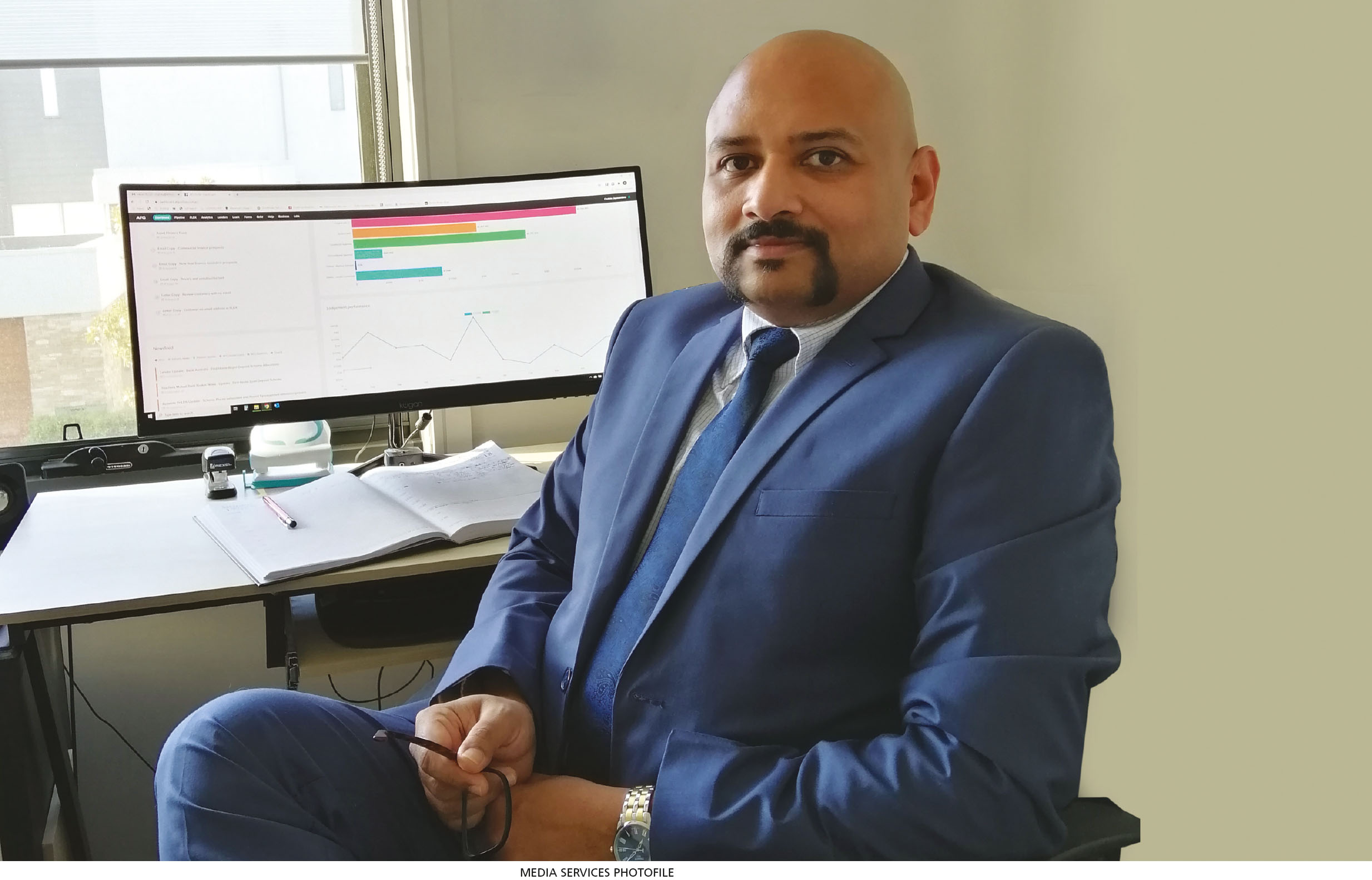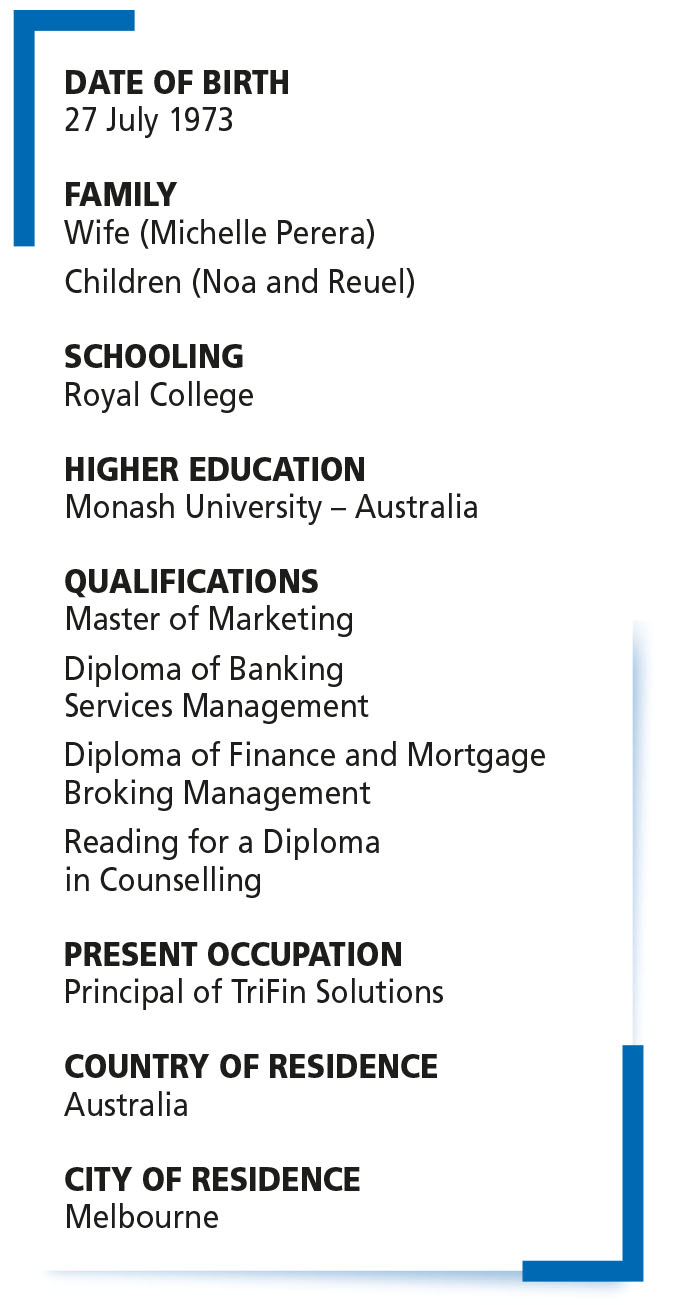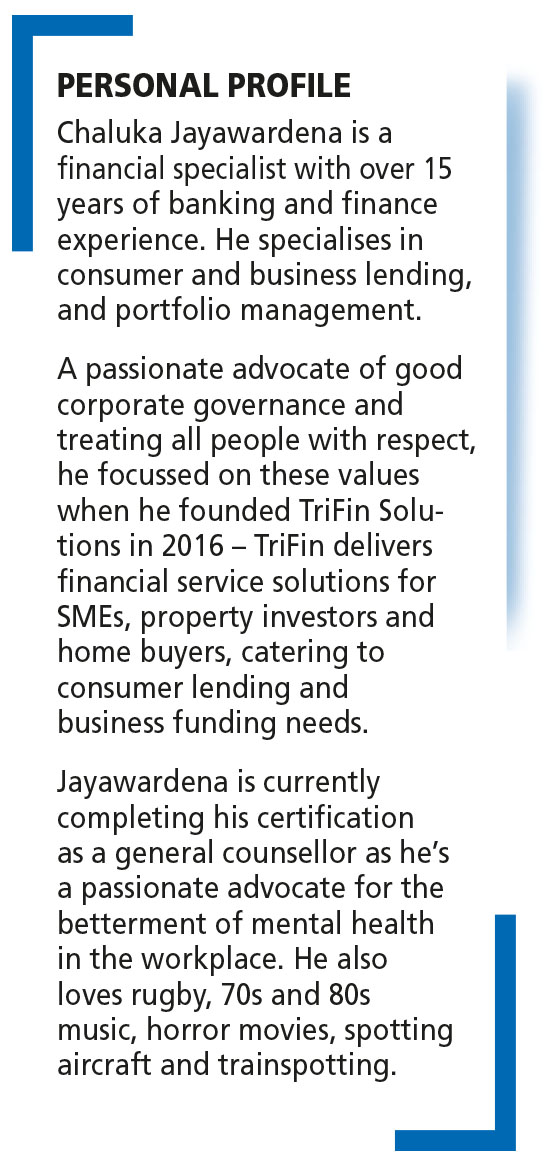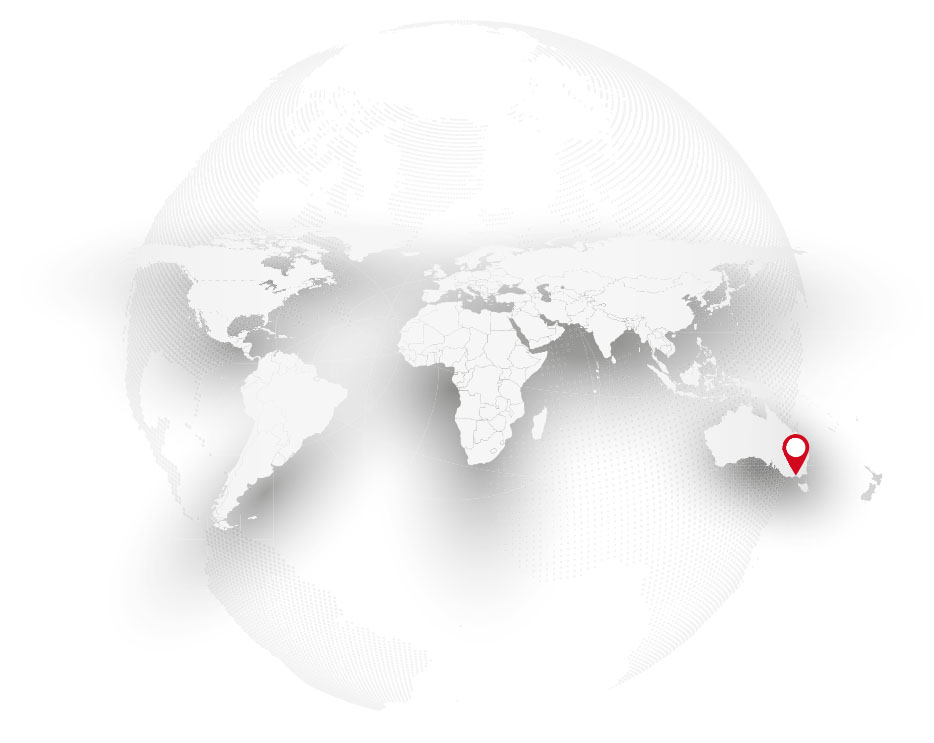SRI LANKANS OVERSEAS
SELFLESS LEADERSHIP
Visionary leadership is key to progress – Chaluka Jayawardena
Q: Is Sri Lanka capable of regaining its composure in the aftermath of the COVID-19 pandemic?
A: The country has witnessed many challenges from consecutive occupations by foreign powers to enduring a decades’ long civil conflict. Sri Lanka bounced back within months of the 2004 tsunami and rebuilt infrastructure at a record pace.
With the right leadership, Sri Lanka has the ability to overcome this crisis too.
Q: How do you perceive Sri Lanka today?
A: It is a land of resources; it has abundant potential that hasn’t been exploited for the benefit of the people.
It is a tragedy that a country with a wealth of natural resources – be it soil, irrigation, natural and man-made reservoirs of fresh water, together with people who are innovative and educated – is being wasted due to a lack of leadership.
Indeed, it can be the ‘Pearl of the Indian Ocean’ if nurtured properly.
Q: And how do compatriots in your country of domicile view Sri Lanka?
A: Sri Lanka is well-known for cricket, beautiful beaches, tourism and mostly the warmth of its people.
Q: Likewise, how do other Sri Lankans living in Australia view Sri Lanka?
A: You would never find a Sri Lankan who isn’t melancholy about ‘Mother Lanka.’
We will always remember the jambu gaha, the ‘lush brown’ grass of a rugby ground or train rides through fields of ‘green gold’ to the kingdom of the last king. Memories…
Sentimentality aside, cautious optimism would be the view.
Q: What were your impressions of Sri Lanka on your last visit – and has it changed from the past?
A: My last visit to Sri Lanka was in 2018. While impressed with development especially in infrastructure, I could not avoid wondering how or if all social classes of people are benefitting from it.
How many skilled manual workers such as masons, plumbers and carpenters are reaping economic benefits from this development? In most countries, infrastructure development means jobs for people and investment in workforce skill development. Have we missed the bus on this?
It was great to see the country shine with the adoption of a retail culture, celebration of food, the arts and so on.
But the hint of racism was a bitter pill to swallow. Despite knowing the cost of ‘ethnic conflict,’ some have forgotten this and are leading people down the same path to conceal their personal inadequacies – this saddened me greatly.
Q: From afar, how do you perceive news about Sri Lanka – and what mediums do you rely on to stay connected especially in times of crisis?
A: I keep myself informed of events in Sri Lanka through electronic media, family and friends.
Sri Lankan news can lead to a roller coaster of emotions.
There’s concern of being led in the wrong direction by narrow-minded and selfish motives of some leaders, and disappointment in a political culture where the basis of differentiation comes down to who is the lesser of two known evils.
One hopes that we will have a leader and system of governance that’ll see the potential of the country for development for all rather than only a privileged few.
Q: How do you view the brain drain and why is there no reversal of it?
A: Many of us would love the opportunity to return to Sri Lanka and employ what we have learnt for Sri Lanka’s development. However, the greatest detractor is the stability and security of future generations.
Most of us have lived in Sri Lanka through troubled times so returning is not an issue. However, political instability and lack of order are concerns.
Adults may be able to live in this environment but the question remains whether we as parents are disrupting the future of our children who have been born overseas and are accustomed to being respected as members of society not because of titles or family background.
Q: What should Sri Lanka focus on most in the coming decade?
A: Selfless national leadership with the exclusion of religious or ethnic bias, a diverse political landscape, and a political system that has equitable minor parties whose goal is not to occupy Temple Trees or President’s House but hold government to account.
Q: And what are your hopes for the country in the next decade or so?
A: I wish to see a country akin to the times of kings when the land was nourished with the sweat of its citizens instead of an imported workforce.










Leave a comment